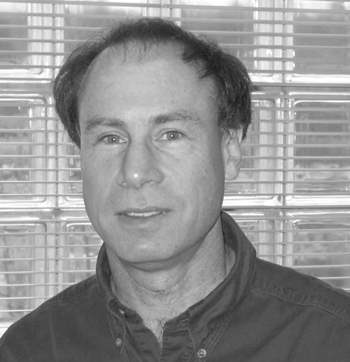NEWS
‘New Frontiers’ seminar series welcomes leading neuroscientist
800×600
Normal
0
false
false
false
EN-US
X-NONE
X-NONE
MicrosoftInternetExplorer4
/* Style Definitions */
table.MsoNormalTable
{mso-style-name:”Table Normal”;
mso-tstyle-rowband-size:0;
mso-tstyle-colband-size:0;
mso-style-noshow:yes;
mso-style-priority:99;
mso-style-parent:””;
mso-padding-alt:0in 5.4pt 0in 5.4pt;
mso-para-margin:0in;
mso-para-margin-bottom:.0001pt;
mso-pagination:widow-orphan;
font-size:10.0pt;
font-family:”Times New Roman”,”serif”;}
Dr. Andrew Schwartz, professor of neurobiology at the University of Pittsburgh, will discuss his groundbreaking research during a presentation titled, “Progress Toward a High-Performance Brain-Machine Interface” as a part of the “New Frontiers in Biomedical Research” seminar series at Louisiana Tech University.
The presentation will take place at 3:30 p.m., February 10 in University Hall on the Louisiana Tech campus. Admission is free and all members of the Louisiana Tech and local communities are invited to attend.
“Dr. Schwartz is an internationally-recognized neuroscientist who is working at the cutting edge of prosthetics and the computer-brain interface,” said Dr. Jaime Newman, assistant professor of biological sciences at Louisiana Tech and coordinator of the “New Frontiers” seminar series. “His most recent research is now being put into practice in a clinical setting. It’s an honor to have him visit us here at Louisiana Tech.”
Schwartz and his team were recently featured on the CBS’ award-winning news program “60 Minutes” which highlighted an innovative technology he developed to help a woman, who is paralyzed from the neck down, be able to use her thoughts to direct a robotic arm and perform routine tasks such as reaching and grasping objects and feeding herself. The video can be viewed at http://www.cbsnews.com/news/breakthrough-robotic-limbs-moved-by-the-mind-30-12-2012/.
Most recently, Schwartz’s neural prosthesis work has progressed to the point that laboratory monkeys can control motorized arm prostheses in a self-feeding task and to orient a prosthetic hand to operate a doorknob with an extension to hand shaping. In collaboration with colleagues at the University of Pittsburgh, this technology is now being used by paralyzed subjects to operate a high-performance prosthetic arm and hand.
After earning his Ph.D. in physiology from the University of Minnesota in 1984, Schwartz accepted a postdoctoral fellowship at the Johns Hopkins School of Medicine where he worked with Dr. Apostolos Georgopoulos, who was developing the concept of directional tuning and population-based movement representation in the motor cortex.
Schwartz’s independent research career began in 1988 at the Barrow Neurological Institute in Phoenix, Ariz. where he developed a paradigm to explore the continuous cortical signals generated throughout volitional arm movements. After developing the ability to capture a high fidelity representation of movement intention from the motor cortex, Schwartz teamed up with engineering colleagues at Arizona State University to develop cortical neural prosthetics. He later moved from the Barrow Neurological Institute to the Neurosciences Institute in San Diego, Calif. in 1995, and then to the University of Pittsburgh in 2002.
Through interacting with leaders in biological research and biomedical engineering, Louisiana Tech’s “New Frontiers in Biomedical Research” seminar series seeks to continue increasing the university’s impacts on science through everyday advances in technology and through new discoveries that expand the knowledge of biology and the treatment of human disease.
Seminars during the series are sponsored by the Lincoln Health Foundation, ADVANCE Faculty Program, Louisiana Tech’s College of Engineering and Science and its Center for Biomedical Engineering and Rehabilitation Science (CBERS), and the College of Applied and Natural Sciences’ School of Biological Sciences.
To register for the free event, please visit http://coes.latech.edu/about-the-college/events.php and click the “Register to Attend” link. The link will also provide the schedule of future seminars in the series.

Recent Comments